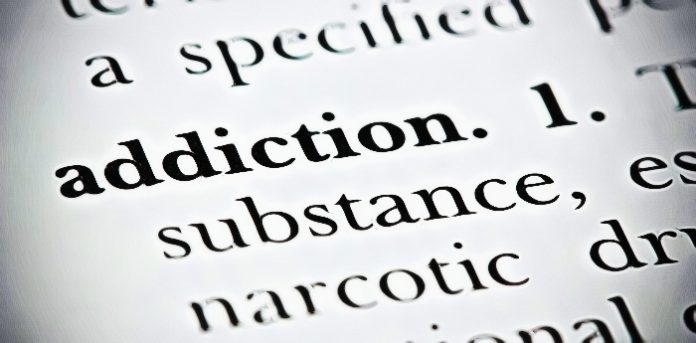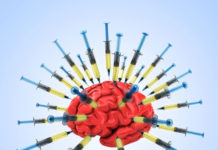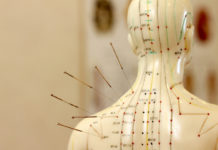Drug and alcohol addiction is a chronic disorder characterized by compulsive drug-seeking behavior and drug use that continues in spite of negative physical, psychological, and social consequences. While initial dosage may be controlled or in moderation, prolonged use of drugs and alcohol can alter the user’s brain function, resulting in loss of self-control and increased drug-seeking behavior.
Since drug and alcohol use typically affect the brain’s reward mechanisms, individuals often find themselves unable to resist the desire to take drugs or alcohol. In addition, increased tolerance reduces the user’s ability to get the “high” they’re seeking, which causes them to increase the dosage in order to get the same effects, resulting in increasing physical and psychological dependence. The longer they are exposed to these substances, the more difficult it can be for users to physically and psychologically heal from addiction. In fact, many addicts will even return to drug and alcohol abuse years after recovery.
Stages of Addiction
Drug addiction can be divided into four stages that denote progression of the user’s physical and psychological dependence, from the time that they are initially exposed to drugs or alcohol through the end stage, chemical dependence.
Stage 1: Experimentation
The first stage of addiction is experimentation, which includes voluntary and infrequent use. It typically begins in social situations, but can also be in response to difficult circumstances in the user’s personal or professional life. During this stage, it is possible for users to discontinue drug and alcohol use, but they will often continue because it makes them feel better or because it is commonly accepted social behavior.
Stage 2: Social or Regular Use
The second stage of addiction involves increased usage that can begin to reflect dependency. Although some users will be able to regularly use drugs or alcohol without establishing dependent behaviors, this is the stage where the risk for abuse begins to increase. Regular use coupled with symptoms of physical addiction, risky behavior, and mood swings are a sign that addiction could be an issue. Users at this stage may feel shame or discomfort about their drug and alcohol use, but will often justify their behaviors in order to continue using.
Stage 3: Risky Use and Abuse
The line between stage 2 and 3 can be difficult to distinguish. While the user may still be functional in day-to-day life, they will begin to prioritize drugs and alcohol over other aspects of their life. They will have become sufficiently inured to the consequences of their use that they will no longer feel guilty or even aware of the effects that their use has on other aspects of their life. The user may begin to experience physical and psychological cravings during this stage, and may become irritable or depressed when they cannot access their drug of choice. Continued use will alter the user’s brain chemistry, particularly the reward mechanisms, resulting in increasing dependency.
Stage 4: Chemical Dependency or Addiction
The final stage of addiction is characterized by disruptive drug or alcohol use and drug-seeking behavior. At this point, the user no longer considers the negative consequences of their drug or alcohol use. They may experience extreme negative consequences that jeopardize their close relationships, professional career, and physical health. Often, addicts will not be able to curb or halt their addiction at this point without medical assistance. They may not seek assistance until they have reached “rock bottom”, which can include hospitalization, loss of a loved one, or even arrest for criminal activity.
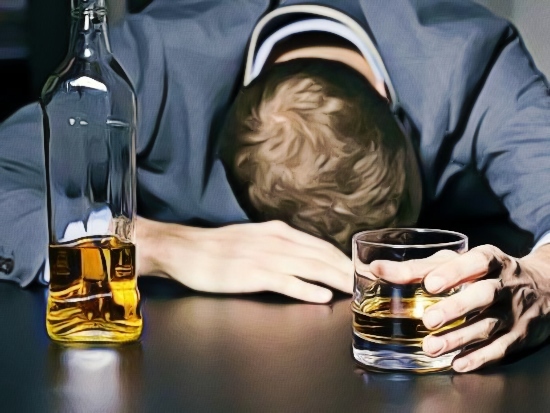
Psychological Dependence
Psychological dependence refers specifically to the mental and emotional aspects of substance abuse and addiction. Although the psychological and physical aspects of addiction are frequently discussed separately, they are fundamentally connected, largely due to the physiological effects of drug and alcohol addiction on the brain. It is therefore important to understand the way that both physical and psychological dependence interact to affect individuals suffering from addiction.
Physical Dependence vs Psychological Dependence
Physical dependence on a drug or alcohol can be characterized by the physical effects on the user, including increased tolerance, cravings, and withdrawal symptoms. Since the brain is physically altered by continued drug and alcohol abuse, psychological addiction is inextricably linked to the user’s physical dependency. Although physical dependence does not necessarily indicate addiction, it is often connected.
Drug and Alcohol Dependence
Drug and alcohol dependency share many of the same characteristics. In fact, although alcohol is considered more socially acceptable than other drugs, it is still mind-altering and addictive. You can identify drug and alcohol dependence by watching for the following signs:
- Obsessive drug and alcohol seeking behavior
- Cravings and withdrawal symptoms
- Anxiety and depression associated with cessation of drug or alcohol use
- Irritability, restlessness, mood swings and insomnia associated with the cessation of drug and alcohol use
- Uncertainty about whether the user can quit
- Denial of a substance abuse problem
- Cognitive impairment, including concentration, memory, decision-making, and problem solving
If you or a loved one are experiencing these symptoms of addiction to drugs or alcohol, it is important to seek assistance as soon as possible. The sooner addiction is treated, the better the long-term outcome for physical and psychological effects of addiction. Fortunately, there are a variety of resources and treatment methods available for individuals seeking to overcome addiction.
Stages of Change Addiction
The Transtheoretical Model of Change, also known as the Stages of Change Model, is a comprehensive 6-stage technique used to assist individuals with drug and alcohol addiction recovery. The six stages of this model are precontemplation, contemplation, preparation, action, maintenance and termination. Understanding each step is critical to the overall success of the program.
Stage 1: Precontemplation
Precontemplation is the first of six stages in the Stages of Change Model. Individuals in this stage do not generally believe that their drug or alcohol use is problematic. At this point, they may not have experienced negative consequences, or they are in denial about the negative consequences that have occurred. When they are eventually faced with negative repercussions of their addiction, users will begin moving toward the contemplation stage.
Stage 2: Contemplation
The second stage of the Stages of Change Model is contemplation. In this stage, users begin to consider moderating or quitting the drug or alcohol to which they are addicted. They may be more inclined to learn about the consequences of their behavior and consider solutions. This stage can last for years, and may result in a move forward to the preparation stage or backward to precontemplation.
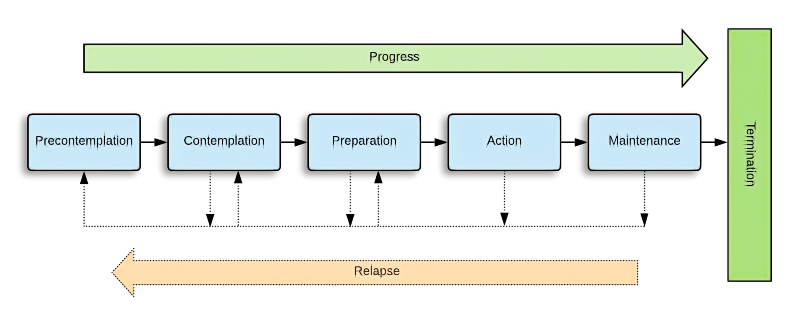
Stage 3: Preparation
The third stage, preparation, follows contemplation with planning. The addicted individual has begun to learn about the effects of their addiction and is prepared to make a plan to make changes. This may include deciding what changes need to be made, considering how to make those changes, finding resources and support, and removing potential triggers. Once their plans have been laid, addicts can move to the action stage.
Stage 4: Action
The action stage incorporates the plans created in the preparation stage into decisive action. This stage of the Stages of Change Model can be very stressful, and typically starts with detox and treatment to help the user safely remove drugs and alcohol from the system. Due to the potential severity of withdrawal symptoms, it is important that individuals seek help from professionals in a detox facility or treatment center. Depending the level of addiction and intended result, users may not require a full detox. In this case, the action stage may involve smaller changes that provide the user with more support and helps to mitigate potential triggers by providing alternative coping mechanisms.
Stage 5: Maintenance
Once treatment or behavioral change has been instituted, the individual suffering from drug or alcohol addiction move to the maintenance stage. In many ways, this can be the most difficult step of the process. The addicted person must reestablish their life while constantly working to prevent relapses. While active change may not occur, small modifications in behavior and habits are constantly made by the individual in order to internalize the lessons from the previous stages and prevent relapses. In this stage, the potential for relapse may be high with certain individuals.
Stage 6: Termination
The final stage of the Stages of Change Model of Addiction is termination. During this stage, the addicted individual is no longer tempted to use drugs or alcohol. There is some debate as to whether this stage is possible. Some experts believe that addiction ends with maintenance, and that addicts must be vigilant throughout their life.
If you or someone you love is displaying signs of drug or alcohol addiction, do not hesitate to reach out for professional assistance. There are a wide range of resources available for users in every stage of addiction, regardless of the substance. Addiction is a progressive disease, so it is critical to seek help as soon as possible.
Sources:
https://www.drugabuse.gov/publications/drugfacts/understanding-drug-use-addiction
https://www.stanfordchildrens.org/en/topic/default?id=stages-of-substance-abuse-1-3060
https://journals.sagepub.com/doi/10.4278/0890-1171-12.1.38
https://books.google.com/books?id=ZeeVDgAAQBAJ&lpg=PP1&pg=PT294#v=onepage&q&f=false
https://www.drugabuse.gov/publications/drugs-brains-behavior-science-addiction/treatment-recovery


